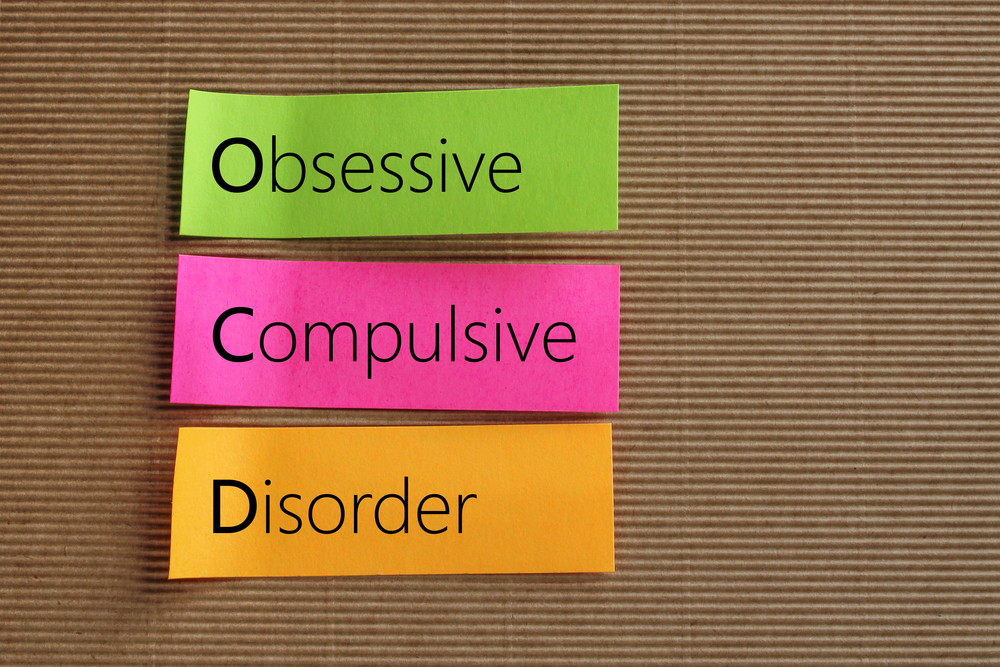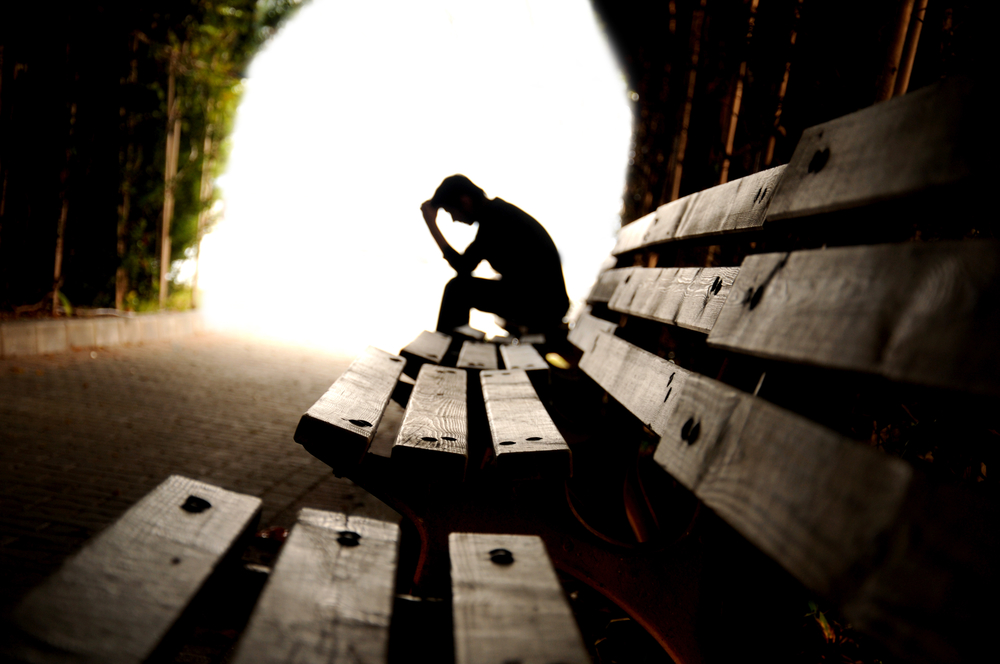OCD and Addiction Treatment in Indiana
On its own, mental health issues such as obsessive-compulsive disorder (OCD) is already a major problem to contend with, and the same goes for substance use disorders. When they occur together, OCD and addiction could be exceedingly difficult to deal with, let alone treat. More and more people are learning that they actually have a dual diagnosis case, and this could very well be why just receiving treatment for either the mental health issue or the substance abuse disorder could be quite ineffective, as there is a need to treat both simultaneously.
A disturbing fact about this is that psychotherapists report that at least half the number of people who have been diagnosed with a mental health issue could also have a substance use disorder at some point in their life. Numerous studies have been done as to why these two conditions occur together, and why separate treatment of one or the other has always proven to be ineffectual.
Studies done into the two conditions have so far established at least two relevant facts:

Many people with mental health issues exhibit thought patterns and behavior that are not necessarily helpful. In fact, they could actually be harmful. It is not uncommon for some of these people to think that they could self-medicate, whether it be for their mental health issue or for some other perceived illness. There are cases wherein the high received from the substances they took were just incidental, as they really believed that by taking the substances, they would get well.
Many substances come with brain-altering properties. The altered perception or sensation provided by the substance could actually be a prelude to some form of brain damage. The severity and duration of the damage could even become permanent if the substance happens to be quite potent, or if the person is a chronic user. Some substances are known to change the chemistry of the brain or even affect the normal function of the central nervous system, which is why it really is no wonder if a person develops a mental health disorder because of chronic substance abuse.
Table of Contents
ToggleHow is OCD Different from Obsessions and Compulsions?
Depending on what school of thought is subscribed to, obsessions and compulsions are defined as components of an obsessive-compulsive disorder.
Obsession
These are constant, persistent, intrusive, and unwanted thoughts that trigger an intense emotional response, usually in the form of anxiety or heightened desire for something or someone. What makes an obsession so disturbing is that no amount of self-rationalization or logic could dispel the intense emotional response attached to it.
Normally, once an intense emotion or experience is rationalized, logical thought takes over and the intense emotional response attached to it begins to taper off. In instances of obsession, however, no amount of rationalization could diminish the intensity of the emotional response to it.
Some characteristics of obsessions include:
- Fear of contamination or dirt
- Doubting and having difficulty tolerating uncertainty
- Intense need to have things orderly and symmetrical
- Aggressive or horrific thoughts about losing control and harming the self or others
- Unwanted thoughts, usually focused on violence, sex, or religion
- Fear of being contaminated by touching objects others have touched
- Doubts about locking the door or turning off the stove
- Intense stress when objects aren’t orderly or facing a certain way
- Intense and very specific thoughts, such as driving the car into a crowd of people
- Thoughts about shouting obscenities or acting inappropriately in public
- Unpleasant sexual images
- Avoidance of situations that can trigger obsessions, such as shaking hands, socializing, etc
Compulsion
A compulsion is an intense urge to act upon the emotional response generated by an obsession. The peculiarity of a compulsion is that it is not a simple action in response to the emotion generated by an obsession. More often than not, the actual action done on the compulsion is in a meticulous, careful, and superlative manner, making it seem more like a ritual than a simple action.
Unlike regular rituals which would usually be done once or twice every so often, the intense emotional response generated by an obsession could prompt a person to engage in a compulsive action repeatedly. There are cases of people whose compulsive ritualistic actions fill the better part of their day. Just like an obsession, a person who is powerless to stop themselves from acting out a compulsion is further agonized by the fact that they are completely aware of how irrational it is, but they are incapable of overcoming it.
Some characteristics of compulsions include:
- Intense need to wash and clean
- Checking if things are alright
- Counting (to see if anything countable meets a perceived number)
- Orderliness
- Following a strict routine
- Demanding reassurance
- Hand-washing to the point of skin irritation
- Checking doors repeatedly to make sure they’re locked
- Checking the stove repeatedly to make sure it’s off
- Silently repeating a prayer, word, or phrase
- Arranging items or displays to face a certain way
The need to see these obsessions and compulsions followed could be so extreme that certain people actually feel paralyzed if they see any disruption in the patterns they follow. Others become visibly bothered and irritable and could only calm down if they are able to fix things to the way they deem it to be proper.
This might seem rather ridiculous or even mundane for most people, but to those who do have OCD, this kind of disruption is pure psychological torture, and because it happens in everyday like every so often, some would do their best to find a way to quell these obsessions and compulsions in whatever way they could. Sadly, some find that substances that numb or dull their senses, such as alcohol or other depressants, is the only way that they don’t feel the massive emotional upheavals they feel when they see a pattern disruption.
Is OCD a Form of Anxiety Disorder?
Various psychological studies have tried to ascertain a clear connection between OCD and the various anxiety disorders, as the obsessions and compulsions are being seen as either a manifestation of anxiety, or as the resulting anxiety from being exposed to a disruption of patterns.
Many studies, however, have found no clear and concrete associations between obsessions, or even OCD itself, with anxiety or other other psychological issues associated with anxiety disorders. What has been established is that Isolated obsessions or obsessive-compulsive disorder may occur with or without anxiety. OCD has also largely been separated from depression by the study. It has been established as a distinct and separate phenomenon.
What is Dual Diagnosis?
Dual diagnosis, otherwise known as co-occurring disorder (COD) is the condition of having a mental health disorder and a comorbid substance abuse disorder. People with conditions such as depression, psychosis, obsessive-compulsive disorder, schizophrenia, panic disorder, or generalized anxiety disorder are typically known to suffer from a dual diagnosis when they compound their situation by using substances such as alcohol, cannabis, opioids, or any other substances that is classified as habit-forming or addictive.
Conversely, because there are substances that are so potent that they not only alter the chemistry of the body or of the brain, but their effects tend to be cumulative with chronic use. In the case of substances that directly affect the central nervous system, continued illicit use has been known to affect the brain and its functions in adverse ways.
Some substances have been known to alter the autonomic functions of the central nervous system, while others have been observed to induce altered mental states that appear to be akin to psychosis, depression, severe agitation or severe paranoia, dissociation, or severely slowed cognitive function (much like that displayed by the learning impaired).
How is Dual Diagnosis Treated?
 More than just being the typical mental health disorder or substance abuse disorder case, a dual diagnosis patient requires specialized care and treatment, as this condition combines the worst qualities of the two disorders. This condition is far more challenging to treat than most other cases requiring therapy, as a very thorough analysis is needed before any kind of treatment could be given
More than just being the typical mental health disorder or substance abuse disorder case, a dual diagnosis patient requires specialized care and treatment, as this condition combines the worst qualities of the two disorders. This condition is far more challenging to treat than most other cases requiring therapy, as a very thorough analysis is needed before any kind of treatment could be given
Dual diagnosis also tends to be challenging in that the symptoms are:
- More persistent
- Extreme in intensity
- Resistant to conventional treatment
- Complicated and requires a series of treatments
To deal with a dual diagnosis case, both conditions need to be treated at the same time, as the prioritization of one before the other could only serve to make the untreated condition worse. In many instances of dual diagnosis, medication-assisted treatment is not an option as the patient needs to have any and all substances flushed out of their system during detox.
The best treatment for a dual diagnosis case is an integrated approach that addresses both aspects of the condition. This is done after a thorough analysis of the patient, as mental health conditions are typically already complicated by nature, without the additional complication added by substance dependency.
First City Recovery Can Help People with a Dual Diagnosis Case
 Mental health disorders are incredibly complex issues that require careful analysis, judicious treatment recommendations, and uncommon patience to deal with. Substance abuse disorders are similar in that different people could react differently to treatment. With such complexities and difficulties, one could only imagine how critical the treatment of a dual diagnosis case could be.
Mental health disorders are incredibly complex issues that require careful analysis, judicious treatment recommendations, and uncommon patience to deal with. Substance abuse disorders are similar in that different people could react differently to treatment. With such complexities and difficulties, one could only imagine how critical the treatment of a dual diagnosis case could be.
We here at First City Recovery don’t have to imagine it, because it is what we do. We help people deal with not only their substance abuse issues, but also with the mental health issues that come with it. It may be difficult, but it’s not impossible. We know that because we have helped countless people with it before. Let us help you now.

MD, Psychiatrist
Dr. Vahid Osman, MD is a psychiatry specialist in Indianapolis, IN.
Dr. Osman completed a residency at Austin State Hospital. He has over 32 years of experience in Psychiatry & Behavioral Health. He is board certified by the American Board of Psychiatry and Neurology.




